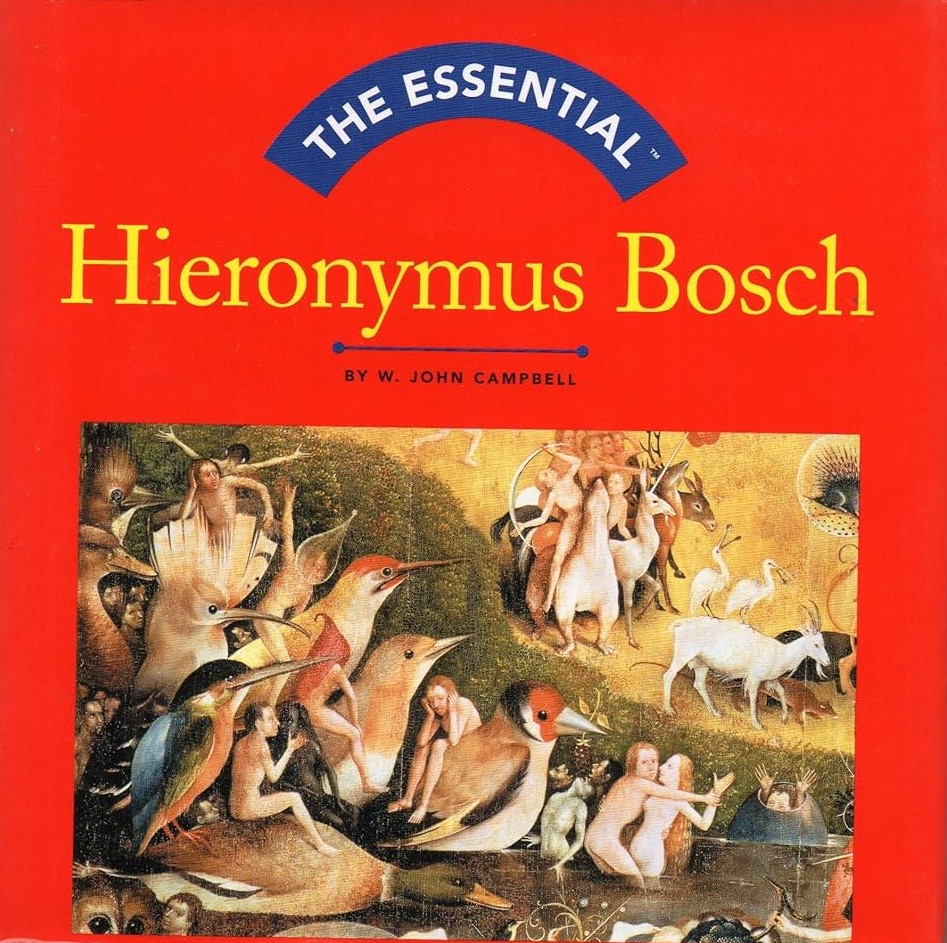
Campbell 2000
THE ESSENTIAL HIERONYMUS BOSCH
(W. John Campbell) 2000
[Harry N. Abrams Inc., New York, 2000, 112 pages]
It is striking how in the first pages of this small, popularizing book the American critic and author W. John Campbell tries to catch the attention of a very broad (primarily young?) public by using trendy words, phrases, and references such as gif photos, big druggie, blah blah, demonic theme park of Hell, sigh, and the television series Seinfeld. One wonders whether this broad public can also be attracted by the rather woolly remarks concerning Bosch’s style in these first pages. Those who are somewhat more familiar with the literature on Bosch will notice that of the five paintings that are being discussed in this context only one can be attributed to Bosch with certainty, which renders Campbell’s remarks concerning style virtually worthless.
This publication shows all the flaws of rather weak popularizing literature on Bosch. Regularly, it tells things that are correct, but everything remains superficial, the core message of a painting is rarely revealed, too often we read nebulous or irrelevant remarks and occasionally a downright blunder. Positive, though, is Campbell’s emphasis on Bosch’s unsuspectedly Catholic message: ‘He never tired of lecturing people on the dangers of their un-Christianlike behavior’ (p. 6), and: ‘Understanding the details of Roman Catholicism is the key to grasping the meaning of these paintings’ (p. 56). More or less correct is also what is said about Bosch’s pictorial language: ‘Cryptic language that piled riddle upon riddle but whose basic meaning, once decoded, proves clear and unambiguous’ (p. 15).
An example of irrelevant information is what is being said about the dry tree in the Rotterdam St Christopher panel: ‘The dead tree with its inhabited, broken pot on the right is far stranger, and may refer to a biblical or local proverb. In Corinthians I: 7-20, people are admonished to remain content with their status in life. In 15th-century proverb lore this translates as “To dwell in one’s calling”. Quite literally, this might caution the local potters to live within their means’ (p. 66). What is the meaning of this?
Examples of pure and simple blunders are the interpretation of the Christ figure in the upper central panel of The Haywain as desperate and of the Joseph figure in the left interior panel of the Prado Epiphany (who is drying the cloths of the Jesus child) as ‘a woman huddled by a fire’ (p. 109). The back sleeve quotes The New York Times: ‘Be an expert in 5 minutes’. A poor joke, as poor as the contents of this booklet.
[explicit December 22, 2024 – Eric De Bruyn]